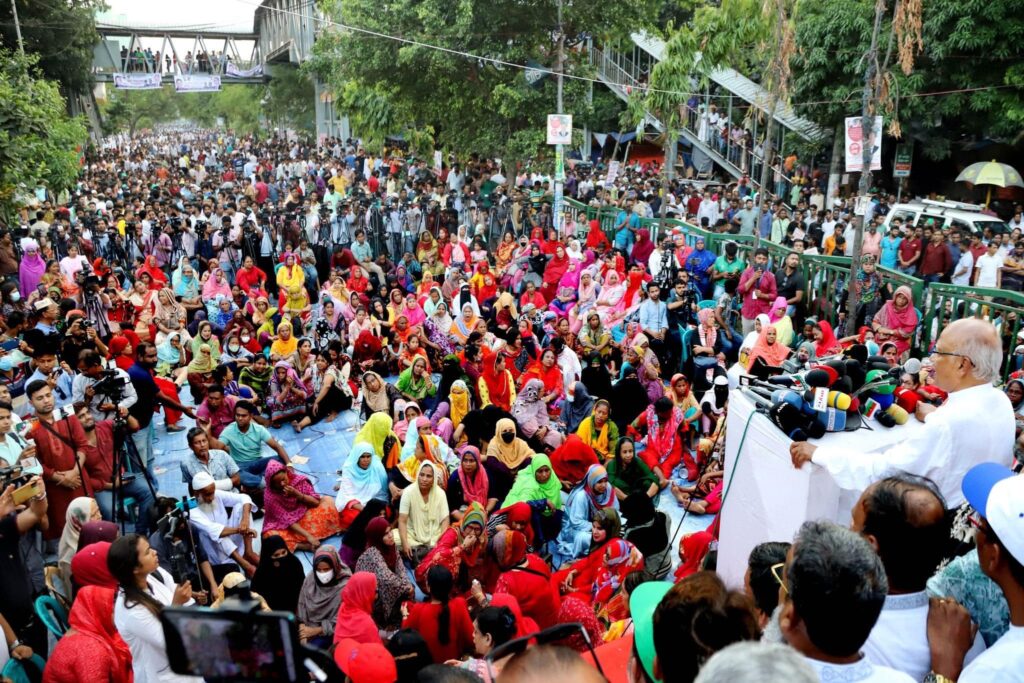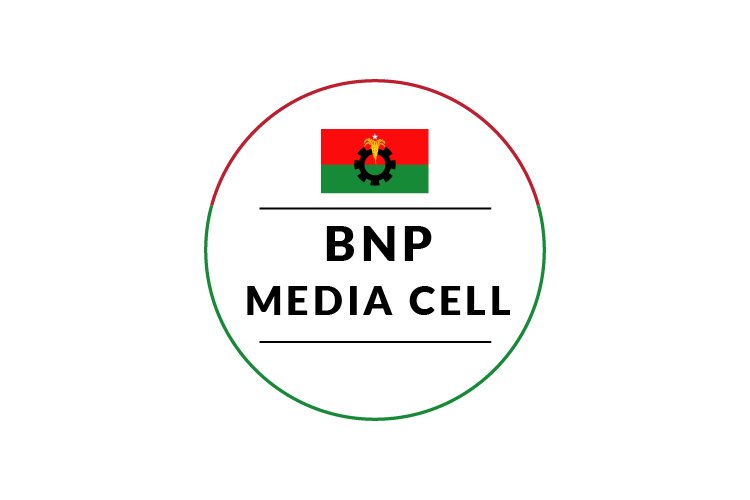In Bangladesh, commodity prices are skyrocketing. The government has increased prices of gas, electricity, diesel, and petrol in several stages. Even fertilizer prices have doubled recently. Prices of edible oil, sugar, and poultry are also the highest in the South Asian region, making out of reach of common people. Job opportunities are shrinking, and farmers are unable to meet the cost of production. A severe dollar crisis is causing bank LC settlement and import issues, which is playing a role in employment shrink in the import-oriented Bangladesh economy. As the government has failed to increase tax collection (Tax-GDP ratio), its ability to increase the social safety net budget and subsidies has been reduced. At the moment, the government has reduced public spending and incentives, causing the poor to suffer more and more as tax levies and VAT are increased on strategic and imported commodities. Additionally, there is political oppression by the ruling party towards the opposition, and the Digital Security Act is a heinous tool against freedom of speech. Reporters Without Borders has ranked Bangladesh very poorly over the last few years. A growing number of poor and lower income Bangladeshi people are turning away from the regime and supporting the opposition party, BNP. More and more poor people are gathering at opposition rallies.
The Bangladesh Nationalist Party (BNP) is one of the two major political parties in Bangladesh, historically associated with right-liberal and medium-liberal political values, and has a significant base of support among the rural poor in Bangladesh. The party’s vision includes lower horizontal taxation, i.e., lower value-added taxation, and a lower holding charge on agricultural lands. In the past, the party offered financial amnesty to agricultural loan defaulters several times. The party encourages export-oriented industries to create local employment and promotes the semi-skilled labor market abroad, especially in the Middle East. The party is known for its benevolent social safety programs, primary education stipends, incentives for women’s education, and poverty-elevation-friendly microeconomic policies for economically marginalized people.
BNP’s Vision 2030 can be said to be more advanced and integrated than any previous political manifesto. Earlier, under Presidents Ziaur Rahman and MA Sattar, former Finance Minister M Saifur Rahman, and others implemented the social security concept of food, education allowance, old age allowance, and widow allowance in exchange for work.
BNP’s Vision-2030 has several proposals. It proposes spending 5 percent of GDP on education, ensuring free education for both boys and girls up to graduation, expanding education stipend programs for boys and girls, and spending 5 percent of GDP on health, almost three times the current one. It has proposed that 50 types of essential medicines will be given to poor people free of charge. Round-the-clock medical care will be ensured by ensuring the presence of at least two doctors with lab facilities in each union health center.
Educated unemployed are to be provided unemployment benefits for one year or until they find a job (whichever is earlier). Vision 2030 promises farmers incentives if deprived of fair value for their crops due to a lack of control over the market process, which aims to bring farmers direct control over crop handling, sorting, storage, and transportation facilities by building an upward cooperative framework (in line with Dr. Akhtar Hamid’s BARD Somobai Somiti model). it promises interest waiver on agricultural loans for poor and natural calamity-affected farmers.
BNP’s Vision 2030 includes a proposal to ensure the democratic right of the working class to form trade unions and collective bargaining. It aims to introduce a review process every two years to fix the minimum wages of workers in all sectors in line with market prices and inflation. The issue of safe housing and transport arrangements for women workers in the garment industry has come up. Planned housing such as cluster housing, multi-storied housing, and reclaiming illegally occupied land without destroying agricultural land aims to rehabilitate slum dwellers and the homeless poor.
With these proposals, BNP is now the people’s party of the poor, low & lower medium income people, farmers & laborers. As a part of the common people, BNP has been reborn with its Vision 2030, new structure, and transformation in value-based political ideology. The ruling party AL is creating new poor in the country through its new incentive-free agricultural sector funding policies, extra high inflation, higher import duty and VAT policy, and high energy pricing policy. Moreover, as the ruling AL is not a pro-environment party, with more and more poverty being made due to pollution-created health hazards & climate change. Besides, there are established poverty traps in Bangladesh which are unaddressed and moreover, there are gradual natural disasters.
One possible reason why poor people in Bangladesh may support the BNP is that they may perceive the party as being more sympathetic to their concerns and needs. The BNP has traditionally focused on issues such as poverty alleviation, job creation, and support for small businesses, which are all issues that are important to the rural poor.
The main opposition Bangladesh Nationalist Party has announced a 10-point charter of demands. Besides political demands, it vowed a number of very strong pro-people positions. It has demanded ‘canceling the government’s ‘anti-people’ decision to increase the prices of public goods, including electricity, energy, gas, and water; bringing the price of daily necessities within the purchasing power of the common people’. Moreover, in the wake of a shrinking democracy, the party is fighting to restore democracy in the country which is the most popular demand of the urban & rural citizens. Showing appropriate concerns against the digital security act, extra-judicial killings & demands for freedom of expression also made the party popular.
Another possible reason is that the BNP has been able to mobilize its supporters effectively. The party has a strong grassroots organization and is able to connect with voters in rural areas in ways that the ruling party may not be able to. This may be particularly important for people who feel marginalized or excluded from mainstream politics.
It’s also worth noting that political affiliation in Bangladesh is often based on factors such as ethnicity, religion, and regional identity, rather than purely on policy issues. Therefore, in the wake of extreme ‘Bangali Nationalism-based marginalization’, a growing number of people may support the BNP simply because they identify with the party’s ‘Bangladeshi Nationalism’ oriented liberal values which in a sense better protect ethnic & socially disadvantaged groups politically, economically & culturally.
Yet besides the democratic right to vote, one of the most striking factors might be, the rising prices of basic commodities such as fuel, fertilizer, and food can have a significant impact on the lives of the poor, who may struggle to afford these essentials. This can lead to frustration and a sense of helplessness, which may in turn drive people towards political opposition movements that promise change.
In addition, if the government is seen as corrupt or ineffectual, this can erode public trust and confidence in the ruling party. The lack of freedom of speech and the use of oppressive laws such as the Digital Security Act can also contribute to a sense of frustration and anger among the public.
All of these factors can create an environment in which support for the opposition party can grow. The BNP may be seen as a viable alternative to the ruling party, particularly if they are able to present themselves as champions of the poor and oppressed. This explains the mass participation of poor, low-income & marginal people in the recent BNP rallies.
The Bangladesh Nationalist Party (BNP) has now become the rallying point for farmers, laborers, and the economically marginalized populace. As a party of the common people, the BNP has undergone a rebirth, with a renewed vision for 2030, a fresh outlook, and a commitment to transformation. The party has been a refuge for those affected by the COVID-19 pandemic, inflation, fires, health crises, and other natural disasters, creating a new class of impoverished people. To uplift these individuals, the BNP must re-imagine how it can provide national services, employment opportunities, and social security measures.


